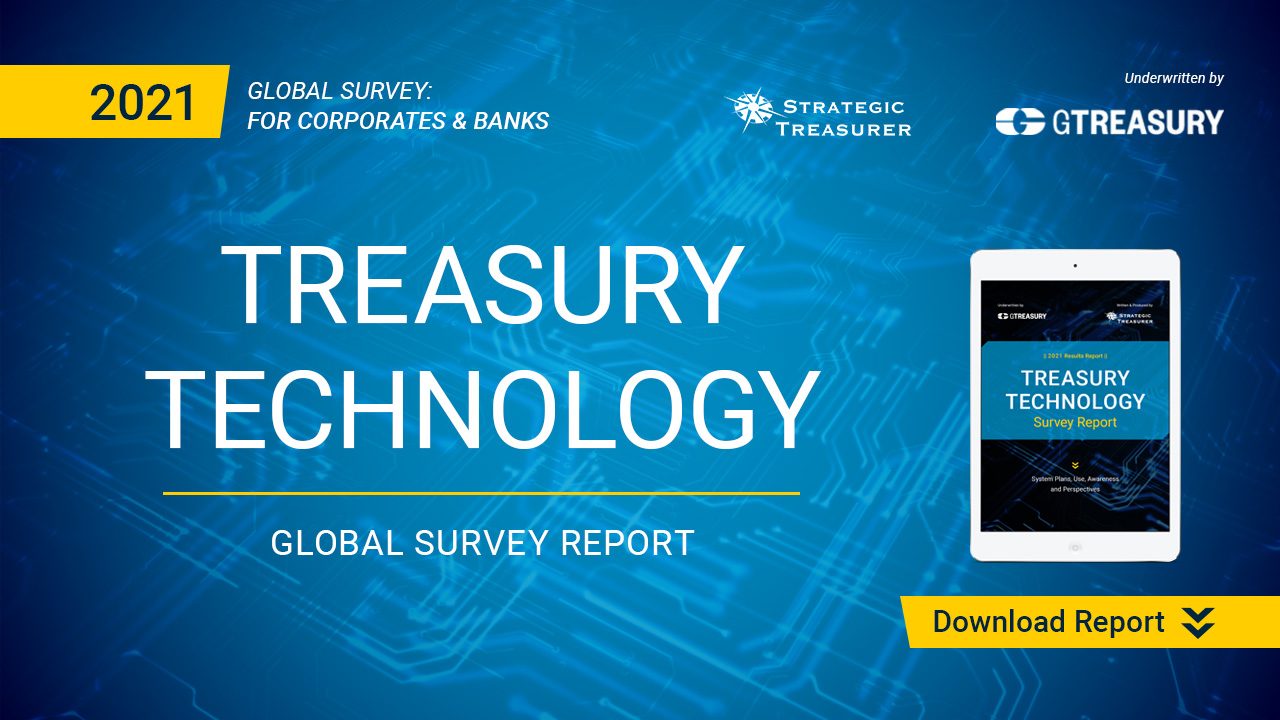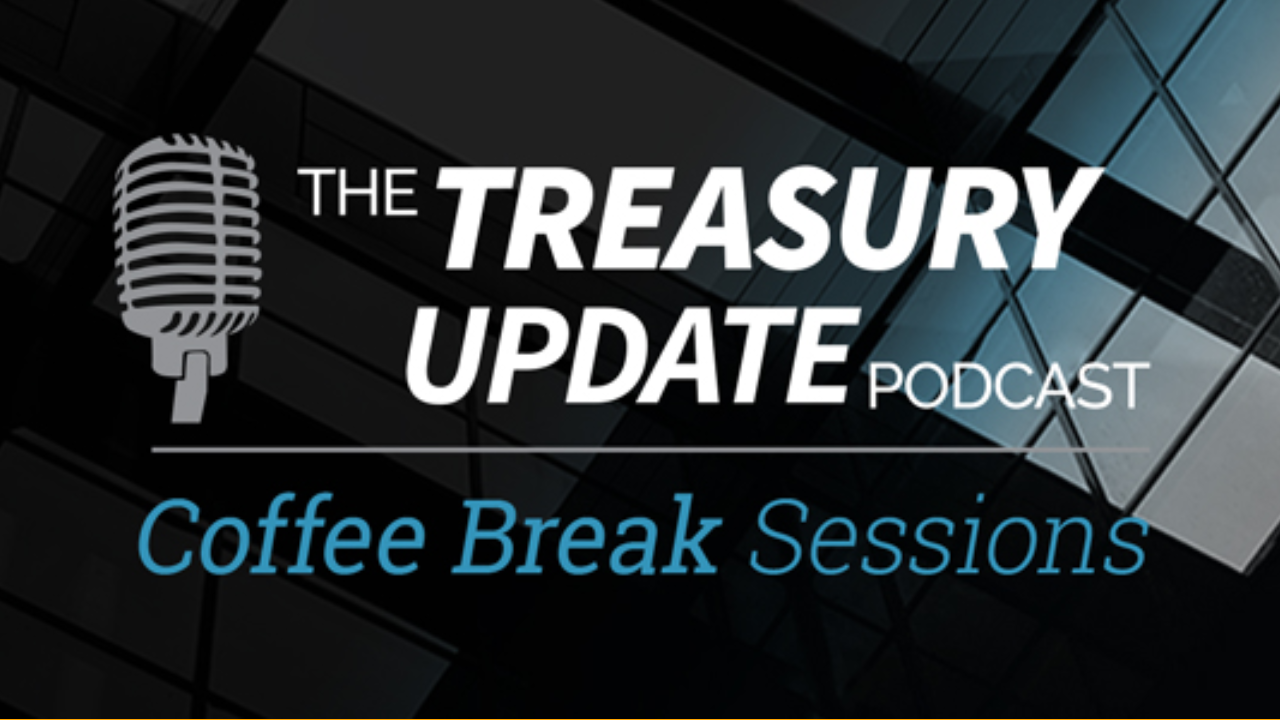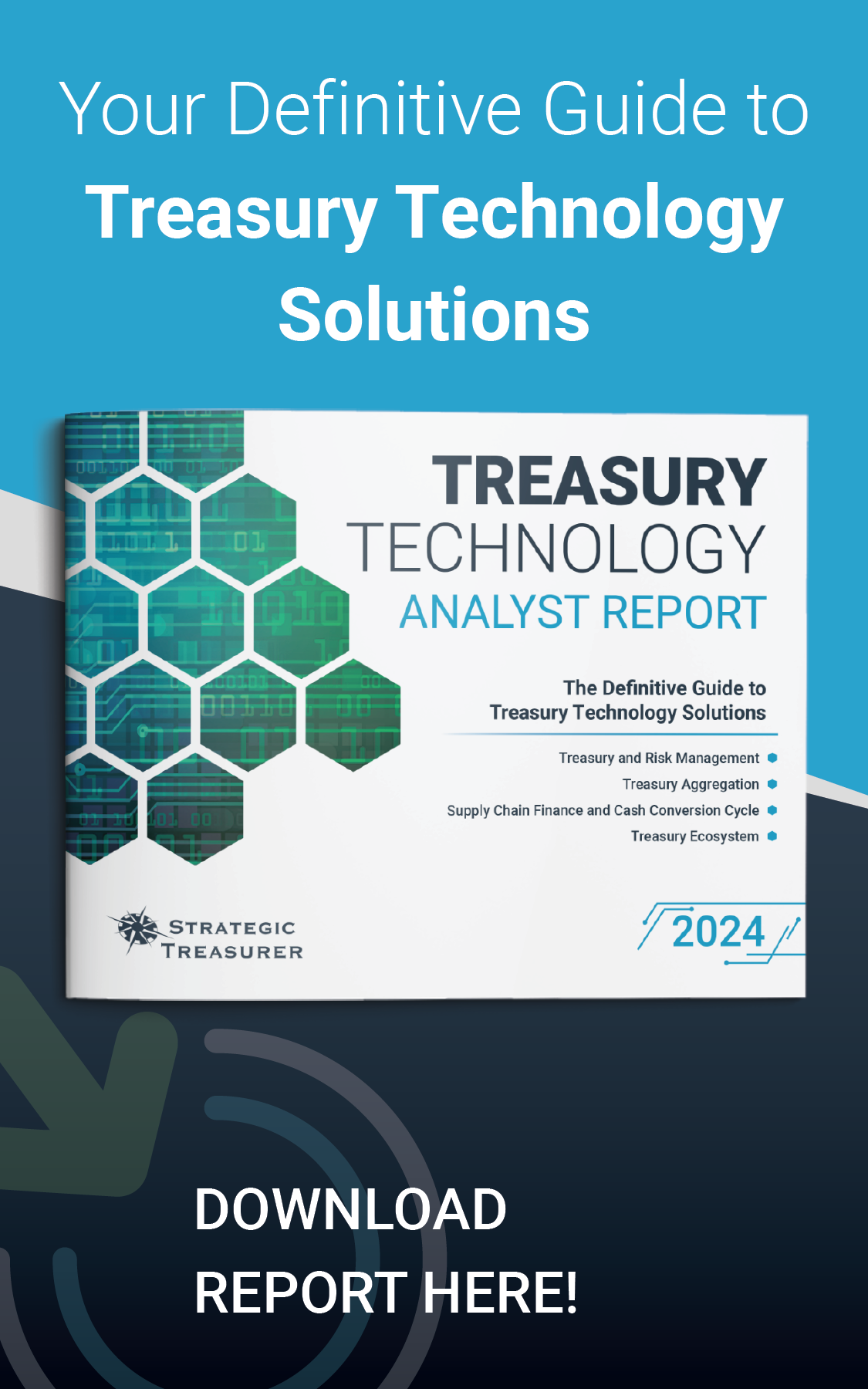
Session 52
Coffee Break Session:
What Is an IPO?
Host:
Alexa Cook, Strategic Treasurer


Speaker:
Craig Jeffery, Strategic Treasurer


Episode Transcription - (Coffee Break Session Series) - Episode 52 - What is an IPO
Alexa Cook 0:08
Hey guys, welcome to The Treasury Update Podcast Coffee Break session, the show where we cover foundational treasury topics and questions in about the same amount of time it takes you to drink your coffee. This is your host Alexa and I’m joined today with Craig Jeffery, Managing Partner of Strategic Treasurer. Welcome back, Craig.
Craig Jeffery 0:26
Good to be back on the Coffee Break session, Alexa.
Alexa Cook 0:30
Yeah, thanks for joining me, especially with us just passing that 50th episode milestone. So, today we’re going to kind of switch it up again and we’re going to look at I like to think a broader topic which is IPOs. So, Craig do you just want to start us off with what’s an IPO? What is IPO stands for or how do they work?
Craig Jeffery 0:49
IPO stands for initial public offering and so this is a way that companies allow, I ‘ll just say public investors, to participate in a company from an equity position.
Alexa Cook 1:03
Okay, so then how do they really work?
Craig Jeffery 1:05
So, companies and I know people who listen to this are very deep in finance or early in finance. Or maybe they’re not even in finance but, you know, companies are owned, they have a combination, oftentimes of debt and equity. And so that might be borrowings and equity is some type of ownership. So, the IPO is related to the ownership side of things and a possible sequence of how companies are owned might start with an individual owner puts their own funds up to start a company. Later on, there might be an angel investor who provides half a million, maybe $5 million to help the company reach the next growth level. And then there might be a private equity firm, maybe they’re putting in 25 million, 50 million, 100 million to take it to the next level of growth. And so, they’re taking out some type of equity and then the initial public offering is the first time that perhaps there’s equity ownership. I’m speaking simply here some equity ownership that’s more publicly oriented in this process. So, the sequence goes from private to public, and it’s really the part of the journey of an IPO.
Alexa Cook 2:23
Okay, that makes sense. And I’ll just assume that, you know, maybe if there was a private investor or a private equity firm that came in when that IPO did move, or when that company did move to being publicly traded. Those original investors would probably get a piece of that.
Craig Jeffery 2:39
Yeah, they’re giving up some percentage of ownership. So, they’re selling it at a certain rate, whatever the IPO rate is, and they would be they would be cashing some of their ownership or all their ownership out.
Alexa Cook 2:53
Okay, that makes sense. So, then who can really file an IPO?
Craig Jeffery 2:57
I can’t answer for every country. And all the different rules that exists for sure. But its companies do this. They have to go through a process of offering the shares. So, if they’re in the US, for example, you have to go to the SEC to file quite a bit of information with them so that they can offer this. It’ll be available to institutional investors to invest in. Individual investors are oftentimes part of this as well. And usually, they’re involving an investment bank as opposed to a corporate banking investment bank who will help get those shares perhaps listed on an exchange, but also tap into their network of private and institutional investors to make the IPO successful.
Alexa Cook 3:46
Okay, that makes sense. So, I’d imagine you know, transitioning into an IPO and then finally becoming public there’s got to be a lot of changes to all the different departments. How would an IPO really change the treasury department?
Craig Jeffery 3:59
Well, since it’s a journey, the access to debt and access to capital differs, whether you’re raising it internally or you’re going to some, a small subset of individual investors, or you’re doing some type of public offering, those things change. So capital planning and capital access has to transition through each of these stages, like where do you get your liquidity from? Who’s willing to invest? Is it public? Is it all the way public? Is it private? Are you talking to private equity firms or angel investors? So, the planning that they do differ some changes? And you might think of things like investor relations and roadshows. Treasury department’s certainly either run or get involved in these activities where they’re sharing their story, more broadly, and this can be to private equity firms. This can be once they have a public offering where they’re trying to tell their story more broadly for those that they want to invest in the organization. And the other part that that comes up as well, oftentimes they’re getting involved with some rating agency or some NRSRO, nationally recognized statistical rating organization, like Moody’s, S&P, Fitch, those types of organization they use their pay for, for some of their services before they’re publicly traded because others, investors, may not invest in these firms if they’re not if there’s not…a no rating for them.
Alexa Cook 5:33
So, then how would these ratings from Moody’s, Fitch, S&P impact, or I guess what’s the relationship with the investment bank then?
Craig Jeffery 5:41
Well, investment banks trying to make sure that your IPO was fully subscribed, they want to get their investors involved. A lot of their investors might only be targeting investment grade or maybe they have some subset that looks for below investment grade investments. So, getting that provides a different type of imprimatur or stamp of somebody’s evaluated this other than the company itself and other than the public accounting firm that may be involved. So, it’s necessary, required in many, many situations, and certainly essential from a success standpoint in IPO.
Alexa Cook 6:24
Okay, that makes sense. So then, just to give a quick recap of you know, what’s an IPO is an initial public offering and really, I think it’s, it could be a good step or a big step for a lot of companies. And we talked about kind of the sequence that companies can go through. So, whether it’s started by an owner or whether it’s funded by private equity, the idea was really taking it to the next level so that the public can then I’ll say, invest in companies via share, or stock purchases. And there’s definitely changes to those treasury departments, whether it’s access to liquidity or you know, capital planning and that sort of thing. Thanks for joining me today. Craig. To all of our listeners, make sure you tune in every first and third Thursday of the month for a new Coffee Break session. And as always, we look forward to hearing from you. So, you can send us an email with comments, topics, questions. We’d love to answer them. That’s podcast@strategictreasurer.com. Thanks again, Craig.
Craig Jeffery 7:17
Thank you.
2021 Treasury Tech Survey Report
Strategic Treasurer and GTreasury are proud to present the findings from the Treasury Technology Survey with data from over 250 respondents operating primarily across North America and Europe. This annual study polls treasury and finance professionals on their views regarding the technology drivers and challenges and system plans, use, and needs.




